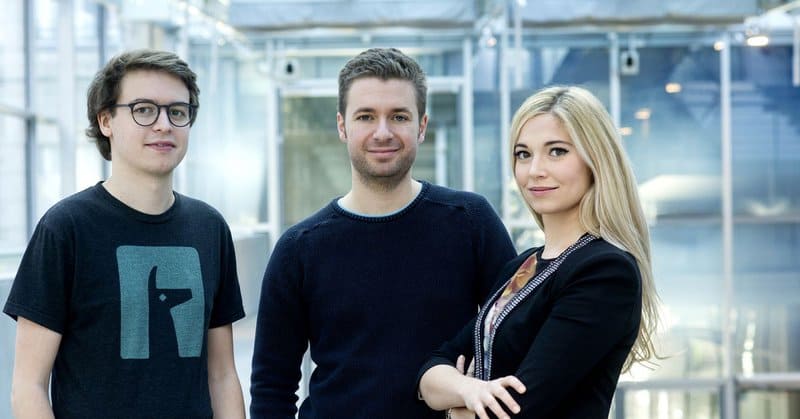Three in four workplace harassment incidents go unreported. That’s why Phil Libin, the co-founder of Evernote, is backing a startup that aims to make it easier for people to report inappropriate behavior.
But since this is Silicon Valley, the startup is creating an app powered by artificial intelligence. The chat bot will prompt people about workplace incidents and record their responses, almost like a diary.
Called Spot, the app launched on Tuesday and it asks users to recount their experiences of harassment and discrimination in the workplace. Co-founders Dr. Julia Shaw, Dylan Marriott, and Dr. Daniel Nicolae think their tool can encourage people to report their experiences more quickly and accurately than they would talking to someone in the HR department.
“If you’re reporting harassment and talking to a human being, there might be bias involved, they may ask leading questions, and you might not trust they’re not going to be sharing that information with something else,” said Dr. Shaw, who holds a PhD from psychology from the University of British Columbia and in addition to her work at spot is a research associate at University College London.
She led a team of researchers to design Spot to ask open-ended, neutral questions in the “cognitive interview” style originally developed to help police ask better questions during investigations.
If an employee experiences unwanted behavior in the workplace they can go to Spot’s website and talk to a chatbot with a text-message style interface, which will ask a series of questions about what happened. The tool uses natural language processing to ask follow up questions about specific people and places mentioned. Spot then compiles the results in a time-stamped, encrypted PDF report that users can download and send to themselves or to their employers.
People can choose to submit their complaints anonymously, which raises the question of how companies will be able to authenticate claims. Libin says it’s better to have a few unverifiable reports rather than none.
“My first reaction to this as a middle-aged white-male CEO guy, was ‘Ugh, this is going to lead to over-reporting, spam’— that’s a common knee-jerk reaction because discrimination and harassment isn’t in their daily awareness,” Libin said. But the real problem, according to the entrepreneur, is underreporting, not the relatively small percentage of false reports.
Companies in the U.S. have a legal obligation to investigate harassment and discrimination claims brought to their attention. Companies have less liability, however, to look into anonymous claims that are unverifiable, according to Spot’s legal advisor, Paul Livingston, who is a practicing lawyer in the UK. But if numerous anonymous claims are launched against one person, the company employing that person could be held legally liable to investigate, he said.
While Spot is free right now, eventually the team plans charge employers for access to their reports. Spot has yet to build the backend data platform that would allow that access.
Libin’s firm, All Turtles, which provides funding and resources such as engineers and working spaces to entrepreneurs, is putting $500,000 in cash to Spot at this time. It’s also dedicating resources from All Turtle’s budget, such as legal experts, which Libin values at $500,000.
Spot wouldn’t be the first technical tool to try to help victims of mistreatment. Callisto , a nonprofit organization that built self-reporting tool for sexual harassment at universities, launched two and a half years ago. Convercent, which makes ethics and compliance management software for businesses, introduced a texting bot for sexual harassment in October. And STOPit app partners with schools and businesses to gather anonymous complaints.
Spot is the only one to focus solely on workplace harassment, for now, and it aims to focus on its AI as a better way to elicit complaints.
“We really believe in the ability in the ability of tech to make people better humans.” said Libin.

